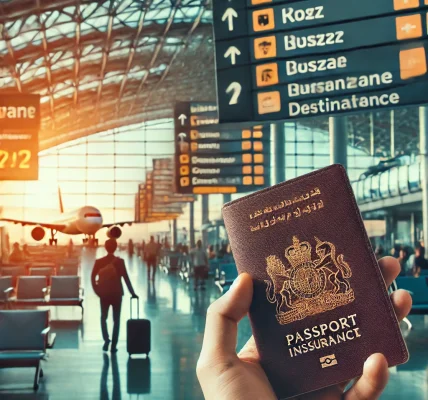Introduction
Traveling is an exciting experience, but unexpected expenses can quickly turn a dream vacation into a financial burden. Flight cancellations, medical emergencies, lost baggage, and trip delays can lead to unforeseen costs. This is where travel insurance comes in—acting as a financial safety net that helps you mitigate these risks.
In this article, we will explore how travel insurance can save you money by covering unexpected expenses, ensuring you enjoy a stress-free journey.
1. Medical Emergencies and Hospitalization Costs
One of the most critical benefits of travel insurance is coverage for medical emergencies. Medical treatment abroad can be extremely expensive, especially in countries with high healthcare costs like the United States, Switzerland, or Japan.
Example:
Imagine you are on a trip to Europe and suffer a severe allergic reaction. A hospital visit, treatment, and medication could cost thousands of dollars. With travel insurance, these medical expenses would be covered, saving you from an enormous financial setback.
What Travel Insurance Covers:
- Emergency hospital visits
- Doctor consultations
- Prescription medications
- Emergency surgeries
- Medical evacuation to your home country (if necessary)
2. Trip Cancellations and Interruptions
Life is unpredictable, and sometimes you may have to cancel or cut short your trip due to personal emergencies, illness, or unforeseen circumstances like a family member’s death.
Example:
You book a $5,000 cruise but have to cancel due to a medical emergency. Without travel insurance, you could lose all that money. However, with trip cancellation coverage, you can get reimbursed for non-refundable expenses.
What Travel Insurance Covers:
- Flight and hotel cancellations
- Cruise bookings
- Tour packages
- Other non-refundable travel expenses
3. Lost, Stolen, or Delayed Baggage
Losing your luggage can be frustrating and expensive, especially if you need to replace essential items like clothes, toiletries, and electronics.
Example:
Your checked baggage is lost by the airline, and you have to buy new clothes and essentials. Travel insurance can reimburse these costs, saving you money.
What Travel Insurance Covers:
- Compensation for lost or stolen luggage
- Reimbursement for essential items in case of baggage delay
- Replacement costs for lost passports or travel documents
4. Flight Delays and Cancellations
Flight delays and cancellations can lead to unexpected expenses, such as hotel stays, meals, and rebooking fees.
Example:
Your flight is canceled due to bad weather, and you have to book a hotel for the night. Travel insurance can cover these extra costs, ensuring you don’t pay out of pocket.
What Travel Insurance Covers:
- Hotel accommodations due to delays
- Food and transportation costs
- Rebooking fees for canceled flights
5. Rental Car Damage and Accidents
If you rent a car during your trip, accidents or theft can result in costly damages. Many travel insurance policies include rental car coverage, helping you avoid hefty charges.
Example:
You rent a car and accidentally damage it. Instead of paying out of pocket, your travel insurance covers the repair costs.
What Travel Insurance Covers:
- Collision damage
- Theft protection
- Liability coverage
6. Emergency Evacuations and Repatriation
In severe cases, such as natural disasters or political unrest, you may need emergency evacuation. The cost of such evacuations can be extremely high.
Example:
You are on vacation in an area affected by a sudden earthquake and need emergency evacuation. Travel insurance can cover the costs of safe transportation back home.
What Travel Insurance Covers:
- Emergency medical evacuation
- Repatriation in case of severe illness or death
- Transport to the nearest medical facility
7. Coverage for Adventure Sports and Activities
Many travelers engage in adventurous activities such as skiing, scuba diving, or mountain climbing. Standard travel insurance may not cover high-risk activities, but you can opt for a policy that includes adventure sports.
Example:
You go skiing in the Alps and injure yourself. Without travel insurance, the cost of medical treatment and evacuation can be significant.
What Travel Insurance Covers:
- Injuries related to adventure sports
- Equipment damage or loss
- Emergency rescues and evacuations
8. Legal Assistance and Liability Coverage
If you face legal trouble while traveling, some travel insurance policies offer legal assistance and coverage for liabilities.
Example:
You accidentally damage hotel property and are asked to pay for repairs. Travel insurance can cover these liability costs.
What Travel Insurance Covers:
- Legal representation fees
- Personal liability claims
- Bail bond assistance
9. Protection Against Travel Scams and Fraud
Tourists are often targets of scams, and travel insurance can provide coverage if you fall victim to fraudulent activities.
Example:
You book a hotel online, but upon arrival, you realize it does not exist. Travel insurance can reimburse you for the lost money.
What Travel Insurance Covers:
- Compensation for fraudulent bookings
- Financial protection against scams
- Emergency assistance to find new accommodations
Conclusion
Travel insurance is not just an optional expense—it’s a smart financial safeguard against unexpected costs. Whether it’s a medical emergency, lost baggage, or a flight cancellation, having the right policy can save you thousands of dollars and provide peace of mind.
Before purchasing travel insurance, carefully review the policy details to ensure it meets your specific needs. A well-chosen travel insurance plan can turn unexpected setbacks into minor inconveniences rather than financial disasters.



